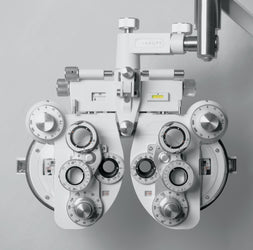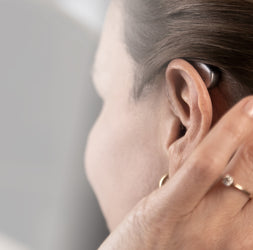Glaucoma isn't just one condition. It's actually a group of eye disorders that harm the optic nerve, the crucial link between your eye and your brain. Damage to this nerve can result in permanent vision loss. Shockingly, according to the World Glaucoma Week website, a staggering 80 million people worldwide are affected by this condition. It stands as the leading cause of irreversible blindness.
The different types of glaucoma
The most prevalent form of glaucoma is Primary Open-Angle Glaucoma (POAG). Here, the optic nerve sustains damage due to increased pressure within the eye. Oddly, the drainage channel of the eye seems open, but it fails to efficiently drain fluid, causing pressure build-up. POAG often creeps in without any noticeable symptoms.
Another notable type is Closed Angle Glaucoma (CAG), characterised by a sudden closure of the eye's drainage channel. This rapid increase in eye pressure leads to acute damage to the optic nerve. Unlike POAG, CAG presents with unmistakable signs like intense eye pain, redness, and vision disturbances.
Several factors can increase your risk of developing glaucoma:
- Age: Glaucoma is more prevalent among older individuals.
- Ethnicity: People of Afro-Caribbean descent face a higher risk.
- Family History: Having a close relative with glaucoma increases your chances of developing the condition.
- Elevated Eye Pressure: While not all glaucoma types feature high eye pressure, it does raise the risk.
- Other Medical Conditions: Conditions like diabetes can also heighten susceptibility.
Spotting the signs
POAG often lurks unnoticed until peripheral vision significantly diminishes. People might notice they're bumping into things more often. On the other hand, CAG strikes suddenly, causing severe eye pain, redness, nausea, headache, and vision disturbances like halos around lights.
Getting diagnosed
Regular eye check-ups are crucial for maintaining eye health. Optometrists conduct screenings, assessing eye pressure, optic nerve health, and peripheral vision. Suspicious findings prompt further investigation.
Early detection is key, as treatment can stop further vision loss. We recommend getting an eye exam at least every two years, or annually for high-risk individuals, with potential NHS support.
Treatment options
While vision loss prior to treatment is sadly irreversible, prompt intervention can prevent further deterioration. Treatment varies based on the type of glaucoma and may include eye drops, laser therapy, or surgery. Booking in for regular eye tests mean we can monitor the condition and ensure treatment is working.
When it comes to glaucoma, prevention really is key. Early detection and proactive management are our strongest weapons.
Haven't had an eye test recently? Find your nearest store here and book in today.








